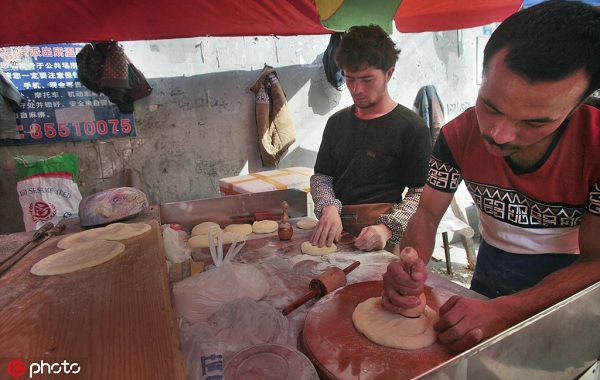Delicious Xinjiang cuisine
A typical breakfast usually includes home-baked bread (naan), firm but smooth yogurt, olives, raisins and almonds, all washed down with tea.

[Photo/IC]
Uygur people like to treat guests with tea, naan and fruits before the main dishes are served. Most Uygur foods are eaten with chopsticks, a custom adopted from Han Chinese culture since the 19th century. Other ethnic groups in Xinjiang generally have varied cooking and eating methods: Kazakhs there, for example, usually eat with their hands.
Uygur hosts like to lay out a tablecloth before dining, and it's not considered good form to leave food or put food back from their plates. Most of them don't eat dove and horse meat, and soy sauce is not used much.
You should notice that most of the food in Xinjiang cuisine is halal due to its Muslim population. Hui ethnic people don't eat meat that comes from animals killed by non-Muslims or consume animal blood. Also, jokes about food are also frowned upon by Hui people.